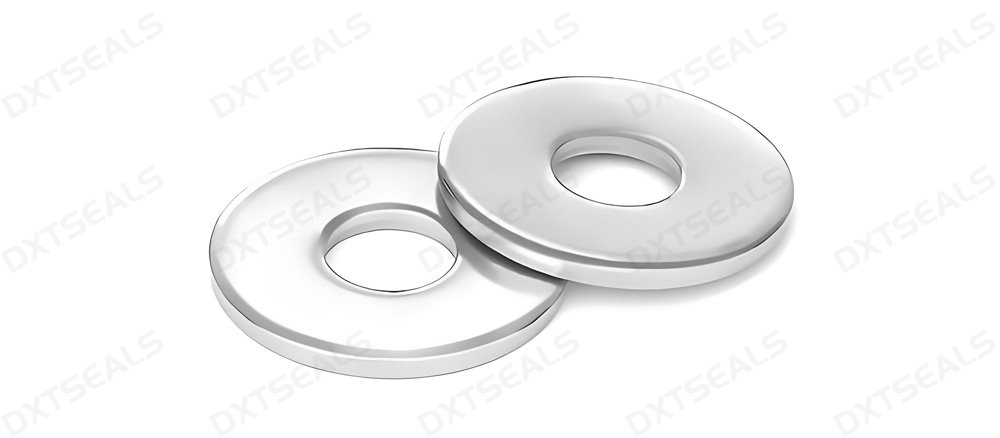
In the world of automotive engineering, the performance and reliability of vehicles depend on high-quality components that ensure everything works seamlessly. One of the unsung heroes in this complex system is the metal gasket. These durable, heat-resistant sealing solutions play a crucial role in various automotive applications, from engines to exhaust systems. Whether you're dealing with internal combustion engines or other automotive systems, understanding the importance of metal gaskets can help you appreciate their pivotal role in vehicle design and maintenance.
In this article, we’ll explore the key benefits and applications of metal gaskets in automotive engineering, highlighting why they are essential for ensuring long-lasting performance and safety in vehicles.
1. Superior Sealing in High-Pressure and High-Temperature Environments
Metal gaskets are engineered to withstand extreme conditions, which is why they are commonly used in high-pressure and high-temperature areas of automotive systems, such as engine cylinders and exhaust systems. Unlike traditional rubber or composite gaskets, metal gaskets provide superior resistance to heat, pressure, and vibration, making them the go-to choice for sealing components that operate under intense stress.
- Benefits:
- Excellent performance in high-pressure environments.
- Ideal for high-temperature applications, such as exhaust systems and engine block seals.
- Can withstand harsh thermal cycles and maintain their sealing integrity.
2. Durability and Longevity
Automotive systems are subject to constant wear and tear, and components like gaskets must be able to endure this harsh environment without compromising performance. Metal gaskets are known for their exceptional durability. They are resistant to corrosion, wear, and fatigue, ensuring a long service life even under tough operating conditions. This longevity helps reduce the frequency of replacements, contributing to lower maintenance costs and longer vehicle lifespans.
- Benefits:
- Resistant to wear and corrosion.
- Long-lasting, reducing the need for frequent replacements.
- Maintains effective sealing over time, enhancing reliability.
3. Excellent Resistance to Chemical Exposure
Automotive systems are exposed to various chemicals, including oils, fuels, coolants, and other fluids. Metal gaskets are designed to resist chemical degradation, unlike rubber or plastic gaskets, which can break down when exposed to automotive fluids. This resistance to chemicals makes metal gaskets ideal for use in engine compartments, fuel systems, and exhaust systems, where contact with corrosive substances is common.
- Benefits:
- Resistant to oils, fuels, and coolants.
- Protects sensitive engine components from chemical degradation.
- Ensures a reliable seal in chemically harsh environments.
4. Versatility in Automotive Applications
One of the standout features of metal gaskets is their versatility. They can be used in various automotive applications, including engines, exhaust systems, cylinder heads, and transmission seals. Metal gaskets come in several materials, such as stainless steel, copper, and alloy-based metals, each offering different properties to suit specific sealing requirements. This adaptability makes metal gaskets essential in diverse areas of automotive engineering.
-
Common Automotive Applications:
- Engine Gaskets: Seals between engine components, preventing fluid leakage and maintaining compression.
- Exhaust System Gaskets: Provides an effective seal between exhaust manifold connections.
- Transmission Gaskets: Seals the transmission casing to prevent fluid loss.
- Cylinder Head Gaskets: Ensures a tight seal between the cylinder head and the engine block, maintaining optimal engine pressure.
-
Benefits:
- Suitable for a wide range of automotive components.
- Available in multiple materials to suit specific needs.
- Can withstand vibration, pressure, and temperature fluctuations.
5. Improved Fuel Efficiency and Performance
Leaking gaskets in an automotive system can cause a loss of pressure, leading to poor engine performance, increased fuel consumption, and higher emissions. By providing a reliable seal, metal gaskets ensure that fuel, air, and exhaust gases flow properly through the engine, optimizing combustion efficiency. This leads to better fuel efficiency, enhanced engine performance, and reduced emissions, all of which are critical in modern automotive design, especially with the increasing focus on sustainability and fuel economy.
- Benefits:
- Prevents fuel and air leaks, improving combustion efficiency.
- Contributes to better fuel efficiency and reduced emissions.
- Enhances engine performance by maintaining optimal operating conditions.
6. Cost-Effectiveness in the Long Run
While metal gaskets may come with a higher initial cost compared to traditional rubber or paper gaskets, their durability and long service life make them a cost-effective choice in the long run. Because they require fewer replacements and reduce the likelihood of costly engine repairs or replacements caused by gasket failure, metal gaskets ultimately save money for manufacturers and vehicle owners alike.
- Benefits:
- Fewer replacements required, reducing long-term costs.
- Enhanced reliability reduces the risk of costly breakdowns or repairs.
- Reduces maintenance time and labor costs.
7. Customization for Specific Automotive Needs
Different automotive applications require specific sealing solutions to meet the unique demands of pressure, temperature, and material compatibility. Metal gaskets can be customized in terms of material, thickness, and shape to meet the specific requirements of each application. Whether it's a turbocharged engine or a high-performance sports car, custom metal gaskets provide tailored sealing solutions that optimize performance and reliability.
- Benefits:
- Customizable to meet the specific needs of each application.
- Ideal for high-performance and specialized automotive systems.
- Can be designed to meet exact specifications for temperature and pressure.
Conclusion
Metal gaskets play an indispensable role in automotive engineering by ensuring the reliable and efficient operation of critical systems. With their resistance to heat, pressure, chemicals, and wear, metal gaskets are essential for high-performance vehicles, helping to reduce maintenance costs, improve fuel efficiency, and enhance the overall longevity of automotive systems. Whether used in engine components, exhaust systems, or transmission seals, metal gaskets are a key part of modern automotive engineering, providing the durability and reliability needed to meet the demands of the industry.
